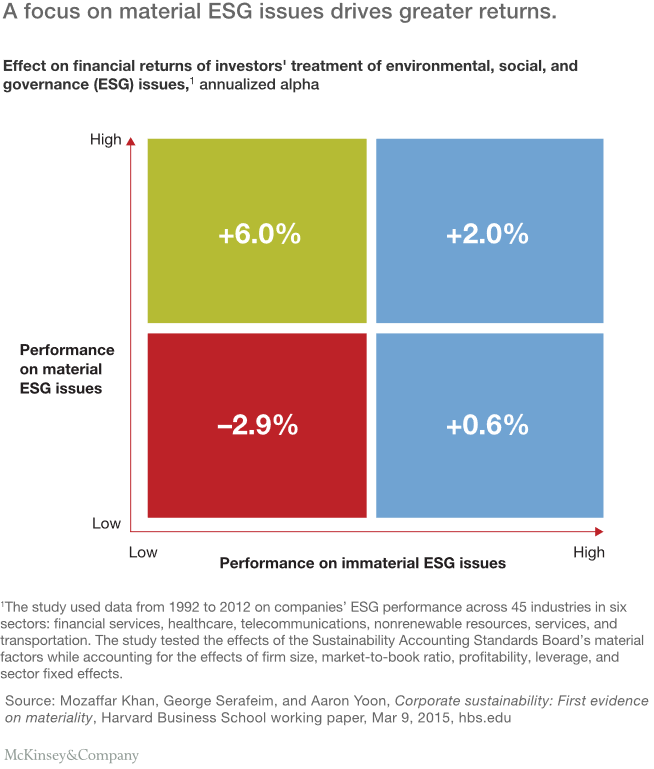autres publications divulgation financière Normes d'encadrement
What institutional investors should do next on ESG : un beau rapport !
Ivan Tchotourian 26 juin 2016
C’est sous ce titre que le cabinet McKinsey (sous la plume de Jonathan Bailey, Bryce Klempner et Josh Zoffer) publie un excellent rapport en juin 2016 : « Sustaining sustainability: What institutional investors should do next on ESG ».
Mainstream institutions have made progress integrating environmental, social, and governance factors into their investing, but they still have far to go. Six ideas can take them to the next level.
Voici les 6 étapes énoncées :
- Require uniform corporate ESG-reporting standards based on the principle of materiality
- Build a shared ESG-rating system for external managers
- Work together to engage with corporations
- Stress-test portfolios for ESG risk factors
- Use a long-term ESG outlook to unlock new investment opportunities
- Confront the skepticism and misunderstanding that surround ESG head-on
À la prochaine…
Ivan Tchotourian
autres publications normes de marché Nouvelles diverses
World Economic Forum : il faut mieux faire pour les critères ESG
Ivan Tchotourian 20 janvier 2016
Le World Economic Forum vient de publier son dernier rapport « Global Risks Report » qui appelle à ce que les critères ESG soient davantage intégrés dans le domaine financier. Ce rapport constate que les investisseurs sont souvent peu mis au fait de l’importance des menaces et que la gestion des risques de régulation et du climat dans les décision de court-terme et dans les données financières est indispensable pour que les investissements intègrent le risque climatique.
The Global Risks Report 2016 features perspectives from nearly 750 experts on the perceived impact and likelihood of 29 prevalent global risks over a 10-year timeframe. The risks are divided into five categories: economic, environmental, geopolitical, societal and technological.
The report also examines the interconnections among the risks, and through that analysis explores three areas where global risks have the greatest potential to impact society. These are the concept of the “(dis)empowered citizen”, the impact of climate change on food security, and the potential of pandemics to threaten social cohesion.
The report also takes an in-depth look at the how the global security landscape could evolve in the future; sharing the outcomes of a year-long study to examine current trends and possible driving forces for the future of international security.
À la prochaine…
Ivan Tchotourian
